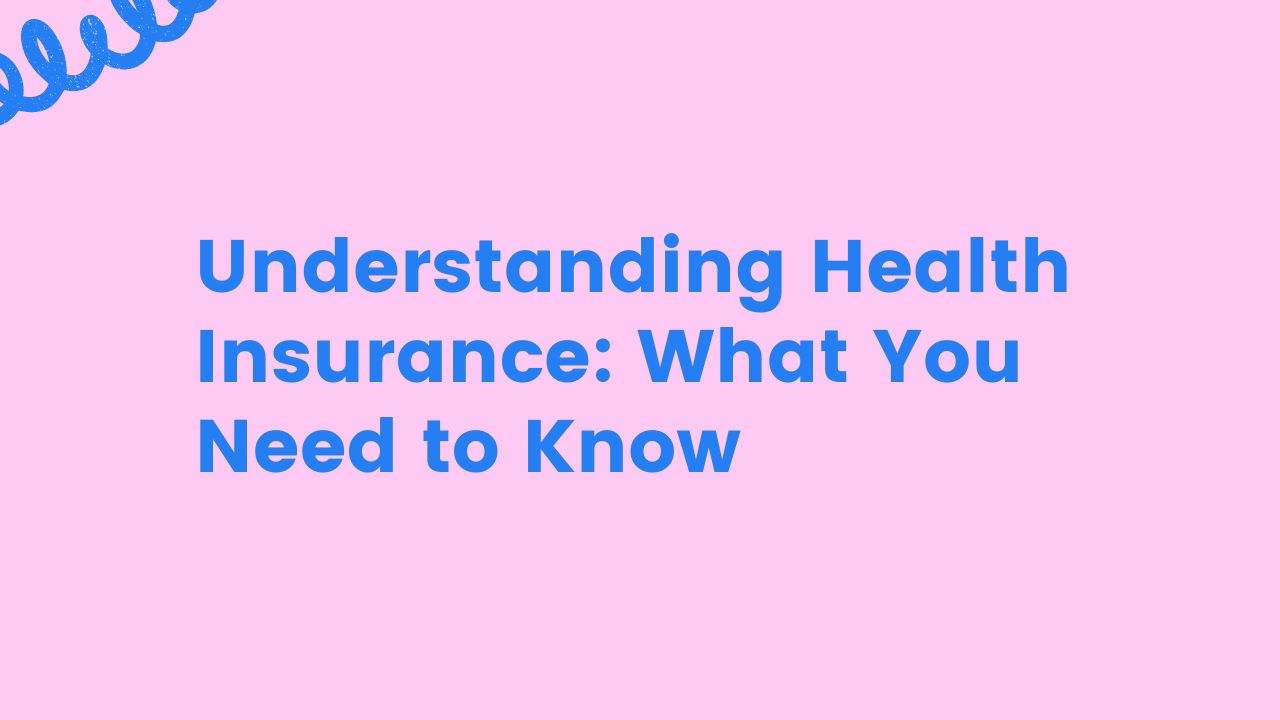Introduction
Navigating the complex world of health insurance can feel like trying to decode a foreign language. But fear not! This comprehensive guide will walk you through everything you need to know about health insurance. From understanding basic terms to choosing the right plan, we’ve got you covered.
What is Health Insurance?
Definition and Purpose
Health insurance is a contract between you and an insurance provider that covers your medical expenses. In exchange for a premium, the insurer agrees to pay part or all of your healthcare costs, depending on your policy. The main purpose is to protect you from high, unexpected medical expenses.
Types of Health Insurance Plans
Individual Health Insurance
This plan is for a single person. It’s perfect if you’re self-employed or your employer doesn’t offer health insurance.
Family Health Insurance
This plan covers your entire family, often at a discounted rate compared to buying individual plans for each member.
Group Health Insurance
Usually provided by employers, this plan covers all employees under a single policy. It’s often more affordable than individual plans.
Public Health Insurance
Government-funded programs like Medicare and Medicaid fall under this category. They are designed to help specific groups such as the elderly, disabled, and low-income individuals.
Private Health Insurance
These are non-government plans offered by private companies. They can be tailored to suit individual needs and often provide a wider range of options.
Key Components of Health Insurance Plans
Premiums
The amount you pay monthly for your insurance policy.
Deductibles
The amount you pay out-of-pocket before your insurance starts covering expenses.
Co-payments
A fixed amount you pay for a specific service, like a doctor’s visit.
Co-insurance
The percentage of costs you share with your insurance company after meeting your deductible.
Out-of-Pocket Maximums
The maximum amount you’ll pay during a policy period before your insurance covers 100% of your expenses.
How Health Insurance Works
The Role of the Insurance Provider
The insurer negotiates with healthcare providers to get you the best rates and covers a portion of your medical costs as specified in your policy.
The Policyholder’s Responsibilities
You pay your premiums, meet your deductible, and make co-payments or co-insurance payments for covered services.
Choosing the Right Health Insurance Plan
Assessing Your Health Needs
Consider your current health status, family history, and potential medical needs.
Comparing Plans and Providers
Look at different plans, compare premiums, deductibles, co-payments, and coverage options.
Understanding Coverage and Benefits
Make sure the plan covers the services you need and check if your preferred doctors are in-network.
Understanding Health Insurance Jargon
Explanation of Common Terms
Familiarize yourself with terms like EOB (Explanation of Benefits), formulary (list of covered drugs), and in-network vs. out-of-network.
Importance of Understanding Policy Language
Misunderstanding terms can lead to unexpected costs. Always clarify any doubts with your provider.
Benefits of Having Health Insurance
Financial Protection
Health insurance shields you from exorbitant medical bills.
Access to Quality Healthcare
Insurance ensures you receive timely and adequate medical care.
Preventive Services
Many plans cover preventive services like vaccinations and screenings at no extra cost.
Common Health Insurance Pitfalls to Avoid
Not Reading the Fine Print
Always read and understand your policy details to avoid surprises.
Ignoring Preventive Care
Skipping preventive care can lead to bigger health issues and higher costs down the line.
Missing Enrollment Deadlines
Ensure you enroll during the open enrollment period to avoid gaps in coverage.
How to File a Health Insurance Claim
Step-by-Step Process
- Obtain an itemized bill from your healthcare provider.
- Fill out a claim form from your insurance company.
- Attach necessary documents and submit them.
Tips for a Smooth Claim Process
Keep copies of all documents and follow up regularly with your insurer.
What to Do if Your Claim is Denied
Understanding Denial Reasons
Claims can be denied due to incomplete information, lack of coverage, or pre-existing conditions.
Steps to Appeal
Review the denial letter, gather supporting documents, and submit an appeal.
The Impact of Health Insurance on Overall Well-being
Physical Health Benefits
Regular access to healthcare services helps maintain and improve your physical health.
Mental Health Benefits
Insurance often covers mental health services, which are crucial for overall well-being.
Health Insurance and the Law
The Affordable Care Act
This act aims to make health insurance more affordable and accessible, especially for those with pre-existing conditions.
Employer Mandates
Many employers are required to provide health insurance to their employees.
Patient Rights
You have the right to appeal denied claims and receive a summary of benefits and coverage.
Future Trends in Health Insurance
Technological Advancements
Telemedicine and digital health records are revolutionizing healthcare delivery.
Changes in Policy and Regulations
Stay informed about new laws and regulations that may affect your coverage.
Conclusion
Understanding health insurance can seem daunting, but it’s essential for protecting your health and finances. By familiarizing yourself with the basics, choosing the right plan, and knowing your rights, you can make informed decisions that benefit you and your family.
FAQs
What is a health insurance premium?
A health insurance premium is the amount you pay monthly to maintain your insurance coverage.
Can I have more than one health insurance policy?
Yes, you can have multiple health insurance policies, but coordination of benefits will determine how each plan pays.
How does a deductible work?
A deductible is the amount you pay out-of-pocket before your insurance starts covering expenses.
What is the difference between co-payment and co-insurance?
A co-payment is a fixed amount you pay for a specific service, while co-insurance is a percentage of the cost you share with your insurer after meeting your deductible.
How can I find out if my doctor is in-network?
Check your insurance provider’s website or contact customer service to confirm if your doctor is in-network.
